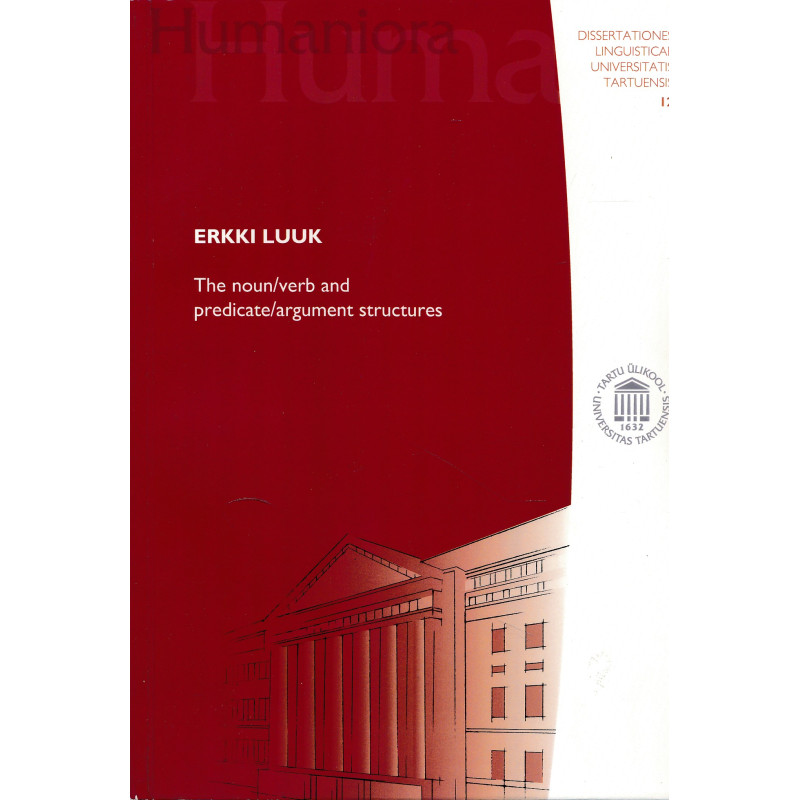




Erkki Luuk
Tartu : Tartu Ülikooli Kirjastus, 2009
98 p. : ill.
ISBN: 9789949191871
Dissertationes linguisticae Universitatis Tartuensis, 1406-5657 ; 12
Paperback used dissertation in very good condition.
Previously, establishing a correspondence between the noun/verb and first order predicate logic's predicate/argument structures has been found problematic (Hurford, 2003a,b). The present paper argues that the predicate/argument system of natural language is more complex than that of first order predicate logic, with up to three levels of predicates and arguments and a rule system for generating predicates and arguments and converting predicates to arguments and vice versa. A property of this system is that nouns correspond to linguistic arguments and verbs correspond to linguistic predicates while the scope of linguistic arguments and predicates is not restricted to nouns and verbs. In addition, some particular properties of this system as well as general properties of any predicate/argument structure suggest that linguistic arguments (e.g. nouns) may be evolutionarily more fundamental than linguistic predicates (e.g. verbs). The second part of the paper analyzes this hypothesis, originally proposed by Heine and Kuteva (2002, 2007), and concludes, with a number of new arguments from a variety of domains, that the evidence of linguistic arguments predating linguistic predicates is overwhelming.